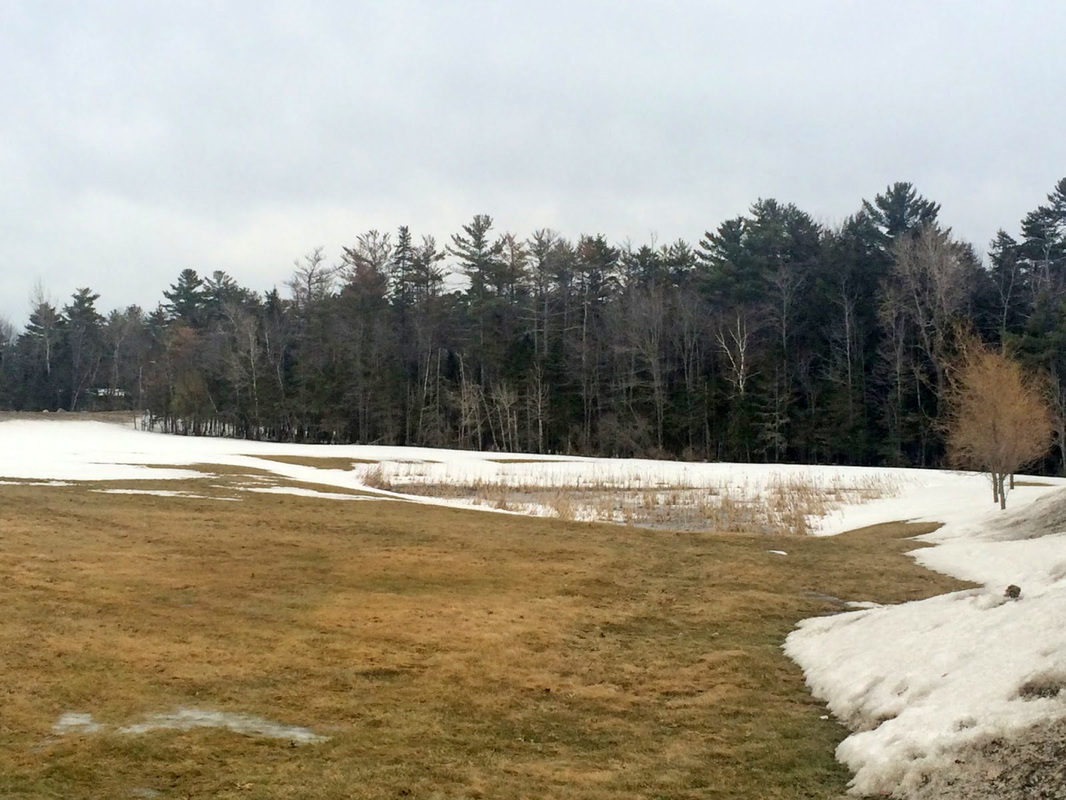Mitchell Jones, PhD student, University of Maine
After a the coldest Maine winter on record the last few days have brought hope for spring at last. Walking the bike path on Friday and Sunday my wife and I came across dozens of people out and about. Whether they were walking their dog, riding their bike, out for a jog they were all smiling and happy that the sun was out and the temperature was above freezing. The snow banks in front of our house are shrinking and the Western facing slopes are starting to show bare ground. We are starting some of our vegetable seeds for the summers garden and our worries about a dwindling wood pile in the basement are easing. It seems that spring may finally be here.
With Spring comes a rush of field work for the lab. We are all going over our last minute project adjustments, contacting landowners for permission to access their pools, and gathering equipment. This will be my first field season and my first spring in Maine. I don’t quite know what to expect but am excited to see the vernal pools here that I have spent so much time researching come alive in our woods.
April 15th is our predicted “big night” the night that local pool breeding amphibians start moving in mass from their overwintering habitat to our vernal pools. Last week I couldn’t imagine that the ground wouldn’t be completely covered in snow but with a week of rain and above freezing temperatures in the forecast it seems much more likely. These amphibian’s movements are triggered by rain and they are not the only animals that use this cue to start a migration. Across the globe numerous other amphibians, birds, insects, and arthropods among other animals start their movements based on a large rainfall event. I was in Cuba last spring and the first thunderstorm of the year brought out thousands and thousands of land crabs. They made their way in mass across roads to the beaches to breed. Its interesting to see the same mechanism in multiple places across multiple taxa. Here in Maine, as the snow melts, our wood frogs thaw, our salamanders make their way up and out of deep burrows and with them all we wait for the rain that will bring us all together at the vernal pools.

